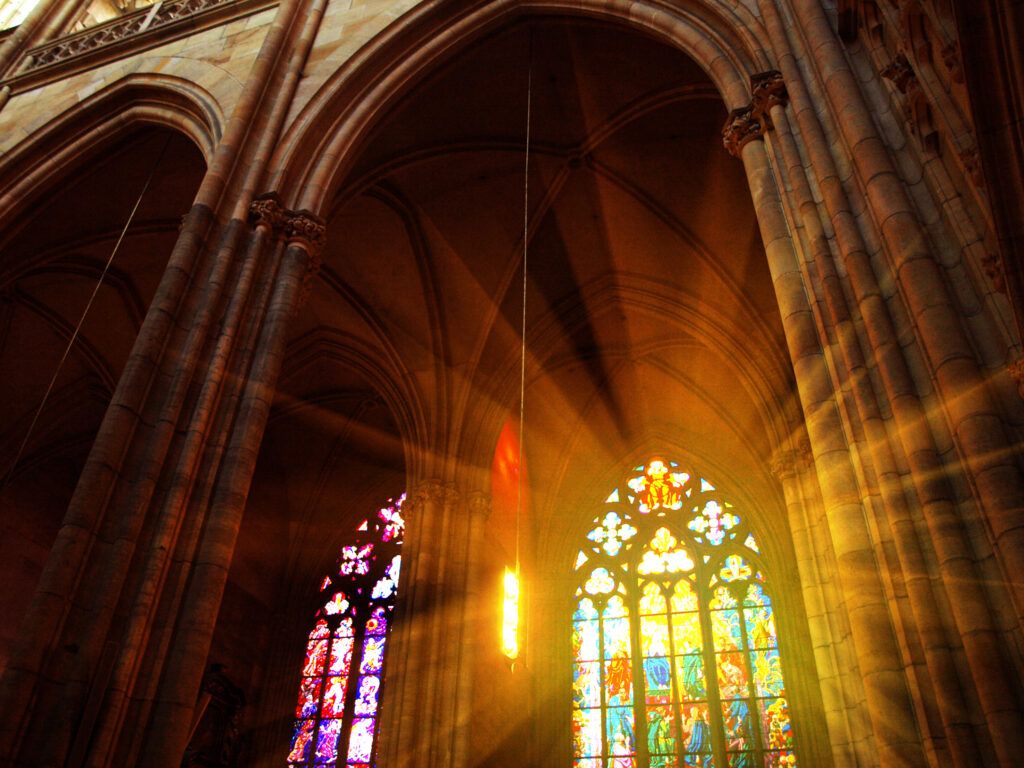CNN’s new series Pope: The Most Powerful Man in History recounts the earliest beginnings of the Papacy, letting audiences peep inside the Vatican to discover how popes have used their power to shape the course of world history. Narrated by Liam Neeson and featuring commentary from some of the brightest minds in the world of religious studies, the series aims to teach us a bit about our shared history when it comes to faith and how the past can inform the present.
For Dr. Anthea Butler, Graduate Chair and Associate Professor of Religious Studies and Africana Studies at the University of Pennsylvania, the chance to contribute to the six-part documentary series was the culmination of a lifetime of work, studying and teaching a faith she grew up in.
“I grew up Catholic but I’ve always had an interest in other religions,” Dr. Butler tells Guideposts.org. “What I do in my classroom is talk about the history of the Church. I try to present it as unbiasedly as I possibly can, but I try to help people understand that this is an intricate part of history and that they should be paying attention to it because it has a lot to do with things going on in the world today.”
The CNN series charts the revolutionary rise of the Church which involved plenty of violence, bloodshed, and suffering on the parts of its members. As Dr. Butler describes it, the beginnings of Christianity, as followers tried to organize and determine the values and rules of the Church, were a bit like the Wild West.
“It’s a really important part of our shared faith,” Dr. Butler explains. “When you think of the beginnings of the Eastern and Western Churches, people were trying to figure out, ‘How do we deal with religion? How do we describe what it is we believe or don’t believe?’ The Papacy’s always been a [tool] for that because you had people sort of running around with no clear vision. Someone had to be over everything.”
The series chronicles the early stages of Catholicism, paying respects to Saint Peter, widely believed to be the first Pope. It also jumps forward in time to modern-day Catholicism to examine the current head of the church, Pope Francis, and the changes he’s making to the Papacy, changes Dr. Butler believes are welcome and needed if Catholicism is to continue to be a benevolent and inspiring part of people’s lives.
“People don’t want to think the Church can sin. It’s hard for them to realize that the Church is not a perfect entity, it has problems,” Dr. Butler says of some of the controversy surrounding the Church that the series addresses. “I think people need to look at the Papacy as people. People must run organizations, people have to run governments and people are fallible.”
Dr. Butler, who received her Ph.D. in Religion from Vanderbuilt University and who’s authored a book highlighting women who’ve made a difference in the church, decided to study religious history because she firmly believes it can helps us understand the divisive issues we face today – issues not unlike those the Catholic Church faced in the past.
Currently she’s teaching a course that examines the Civil Rights Era, the work that both Martin Luther King Jr. and Malcolm X were doing and how it was influenced by faith. Those movements encountered struggles and opposition, much like the Catholic Church did in the beginning, and much like movements like Black Lives Matter and Times Up do today. Dr. Butler thinks there’s a commonality there, one that has much to teach us.
“We have a very short memory here in America and people often forget what went on during the times of slavery or the civil rights movement,” Dr. Butler explains. “They don’t remember everything King did, all of the struggles he went through. They just think about the ‘I Have a Dream Speech’ and it’s all lovely and wonderful but there’s a lot more to that and I think by teaching this class it’s important to remind people of what it takes with these new movements to fight against racism and sexism and how religion can play a part in that.”
If anything Dr. Butler hopes people who tune into the CNN series will learn something new about the beginnings of Christianity they didn’t know before. After all, not all history has to be boring.
“I hope they think the Papacy is pretty interesting,” Dr. Butler says. “They had a lot of wild stuff going on. The Papacy isn’t about just one man running around in a little white robe, it’s about the relationship between politics and religion and exploration and I think it’s important to remember that the Catholic Church is a big part of the history of Christianity, whether you’re Protestant or Catholic, we share that history. “






